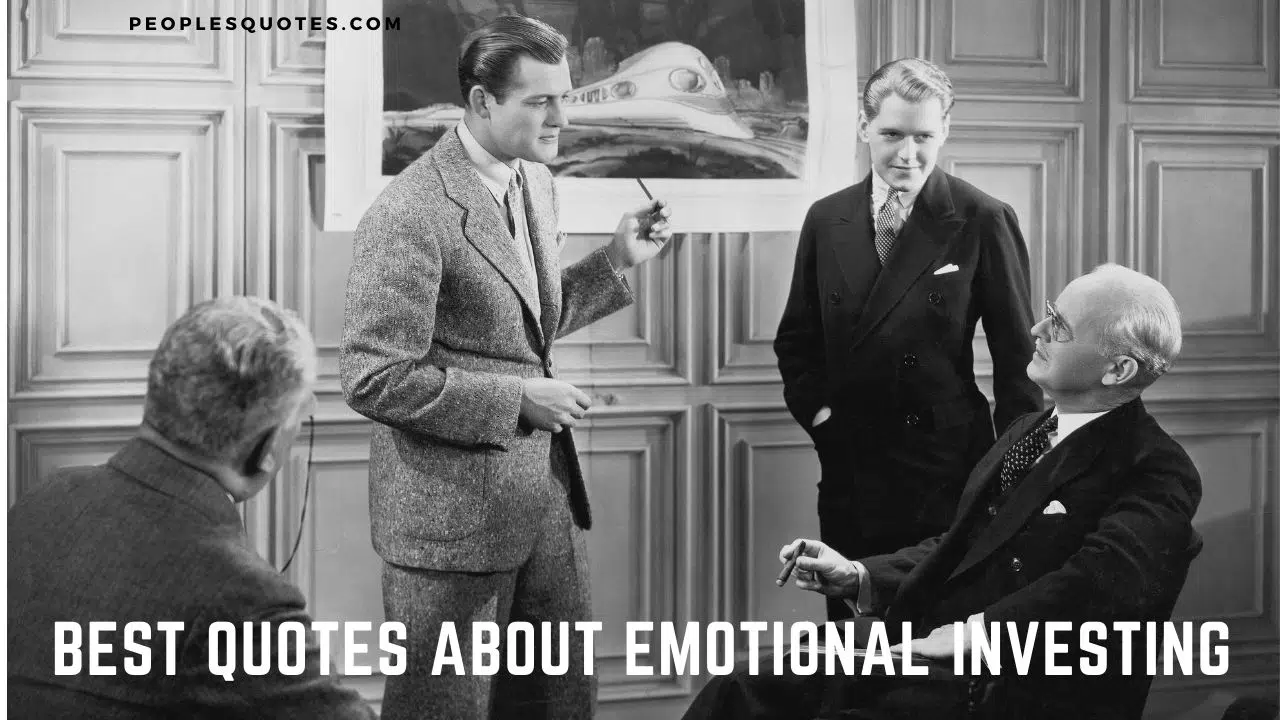Investment decisions driven by emotions often lead to poor rerun or financial loss. And to avoid that, you need to educate yourself as much as possible. So if you want to improve your financial decisions, you can read some of the best quotes about emotional investing from famous hedge fund managers and financial websites.
Best Quotes About Emotional Investing For Better Financial Understanding
- Speculation leads you the wrong way. It allows you to put your emotions first, whereas investment gets emotions out of the picture. — John C. Bogle
- Dollar-cost averaging and diversification are two approaches that investors can implement to make consistent decisions that are not driven by emotion. – Investopedia
- “It’s not whether you’re right or wrong that’s important, but how much money you make when you’re right and how much you lose when you’re wrong.” — George Soros
- “A lot of people with high IQs are terrible investors because they’ve got terrible temperaments. You need to keep raw, irrational emotion under control.” – Charlie Munger
- “Successful investing requires patience, discipline and the ability to control one’s emotions.” – Davis ETF
- “Your success in investing will depend in part on your character and guts and in part on your ability to realize, at the height of ebullience and the depth of despair alike, that this too, shall pass.” – Jack Bogle
- Emotion can cause a person to have ‘present bias’, where they end up favoring immediate gratification over future rewards. – PNBmetlife
- “The best way to measure your investing success is not by whether you’re beating the market but by whether you’ve put in place a financial plan and a behavioral discipline that are likely to get you where you want to go.” – Benjamin Graham
- The most important emotions in relation to money are fear, guilt, shame, and envy. It’s worth spending some effort to become aware of the emotions that are especially tied to money for you because, without awareness, they will tend to override rational thinking and drive your actions. – Forbes
- “A 10% decline in the market is fairly common—it happens about once a year. Investors who realize this are less likely to sell in a panic, and more likely to remain invested, benefitting from the wealth building power of stocks.” – Christopher Davis
- It is difficult to control sentiment when investing because precisely, as human beings, we are prone to following trends, unconsciously influenced by stories and mass trains of thought, making them our own. – BBVA
- The true test isn’t finding the best time to buy or sell. It’s finding a way to look past the media headlines, push aside your instincts to act suddenly or emotionally, and stay true to your reasons for investing in the first place. Then, you can let the natural market cycle take care of the rest. – Corporates.ca
- “The stock market is filled with individuals who know the price of everything, but the value of nothing.” — Phillip Fisher
- “Courage taught me no matter how bad a crisis gets … any sound investment will eventually pay off.” — Carlos Slim Helu
- “Financial peace isn’t the acquisition of stuff. It’s learning to live on less than you make, so you can give money back and have money to invest. You can’t win until you do this.” — Dave Ramsey;h
- “The investor’s chief problem—and his worst enemy—is likely to be himself. In the end, how your investments behave is much less important than how you behave.” – Benjamin Graham
- “Emotion and investing go hand in hand. After all, emotions often motivate us to save. Love for our families, a need for security, and our hopes for the future are all powerful drivers when it comes to investing.” – Investor Vanguard
- For all the talk of “buying low and selling high,” emotional impulses make it hard for investors to resist market gyrations. “This often leads to people piling into investments when markets, stocks, or asset classes are high, and selling when they are low, often instigated by a huge amount of ‘noise’ around these investment opportunities,” – Oxford Risk (Fortune.com)

I’m Murshid Akram, a introvert who love reading and sharing positive vibes through quotes and sayings. I believe with love and compassion we can make this world a better place.

